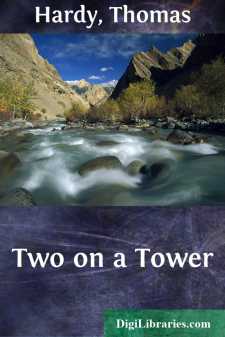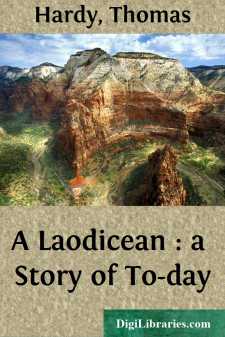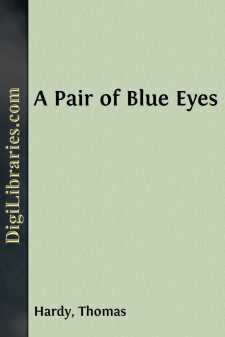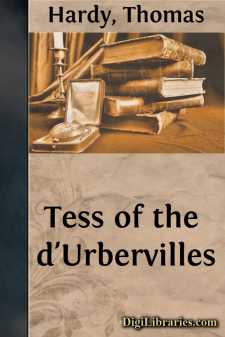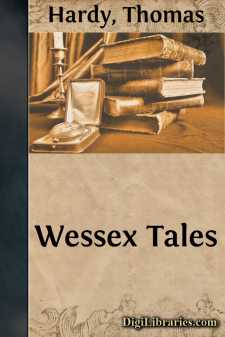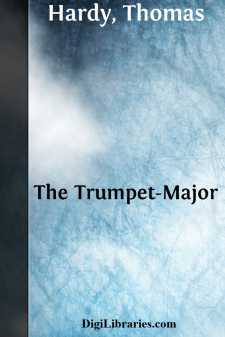Categories
- Antiques & Collectibles 13
- Architecture 36
- Art 48
- Bibles 22
- Biography & Autobiography 813
- Body, Mind & Spirit 142
- Business & Economics 28
- Children's Books 17
- Children's Fiction 14
- Computers 4
- Cooking 94
- Crafts & Hobbies 4
- Drama 346
- Education 46
- Family & Relationships 57
- Fiction 11829
- Games 19
- Gardening 17
- Health & Fitness 34
- History 1377
- House & Home 1
- Humor 147
- Juvenile Fiction 1873
- Juvenile Nonfiction 202
- Language Arts & Disciplines 88
- Law 16
- Literary Collections 686
- Literary Criticism 179
- Mathematics 13
- Medical 41
- Music 40
- Nature 179
- Non-Classifiable 1768
- Performing Arts 7
- Periodicals 1453
- Philosophy 64
- Photography 2
- Poetry 896
- Political Science 203
- Psychology 42
- Reference 154
- Religion 513
- Science 126
- Self-Help 84
- Social Science 81
- Sports & Recreation 34
- Study Aids 3
- Technology & Engineering 59
- Transportation 23
- Travel 463
- True Crime 29
Thomas Hardy
Thomas Hardy (1840-1928) was an English novelist and poet, known for his depiction of the rural life and social issues in the Victorian era. His notable works include "Tess of the d'Urbervilles," "Far from the Madding Crowd," and "Jude the Obscure," which often explore themes of fate, love, and the struggle against societal constraints. Hardy's writing is characterized by its rich, descriptive style and profound pessimism, reflecting his belief in the indifferent nature of the universe.
Author's Books:
Sort by:
by:
Thomas Hardy
PREFACE. This slightly-built romance was the outcome of a wish to set the emotional history of two infinitesimal lives against the stupendous background of the stellar universe, and to impart to readers the sentiment that of these contrasting magnitudes the smaller might be the greater to them as men. But, on the publication of the book people seemed to be less struck with these high aims of the author...
more...
by:
Thomas Hardy
I A Saturday afternoon in November was approaching the time of twilight, and the vast tract of unenclosed wild known as Egdon Heath embrowned itself moment by moment. Overhead the hollow stretch of whitish cloud shutting out the sky was as a tent which had the whole heath for its floor. The heaven being spread with this pallid screen and the earth with the darkest vegetation, their meeting-line at the...
more...
by:
Thomas Hardy
Part First "Yea, many there be that have run out of their wits for women, and become servants for their sakes. Many also have perished, have erred, and sinned, for women… O ye men, how can it be but women should be strong, seeing they do thus?"—Esdras. I The schoolmaster was leaving the village, and everybody seemed sorry. The miller at Cresscombe lent him the small white tilted cart...
more...
by:
Thomas Hardy
PREFACE. The changing of the old order in country manors and mansions may be slow or sudden, may have many issues romantic or otherwise, its romantic issues being not necessarily restricted to a change back to the original order; though this admissible instance appears to have been the only romance formerly recognized by novelists as possible in the case. Whether the following production be a picture...
more...
by:
Thomas Hardy
CHAPTER I Description of Farmer Oak—An Incident When Farmer Oak smiled, the corners of his mouth spread till they were within an unimportant distance of his ears, his eyes were reduced to chinks, and diverging wrinkles appeared round them, extending upon his countenance like the rays in a rudimentary sketch of the rising sun. His Christian name was Gabriel, and on working days he was a young man of...
more...
by:
Thomas Hardy
Chapter I 'A fair vestal, throned in the west' Elfride Swancourt was a girl whose emotions lay very near the surface. Their nature more precisely, and as modified by the creeping hours of time, was known only to those who watched the circumstances of her history. Personally, she was the combination of very interesting particulars, whose rarity, however, lay in the combination itself rather...
more...
by:
Thomas Hardy
Phase the First: The Maiden, I-XI I On an evening in the latter part of May a middle-aged man was walking homeward from Shaston to the village of Marlott, in the adjoining Vale of Blakemore, or Blackmoor. The pair of legs that carried him were rickety, and there was a bias in his gait which inclined him somewhat to the left of a straight line. He occasionally gave a smart nod, as if in confirmation...
more...
by:
Thomas Hardy
AN IMAGINATIVE WOMAN When William Marchmill had finished his inquiries for lodgings at a well-known watering-place in Upper Wessex, he returned to the hotel to find his wife. She, with the children, had rambled along the shore, and Marchmill followed in the direction indicated by the military-looking hall-porter ‘By Jove, how far you’ve gone! I am quite out of breath,’ Marchmill said, rather...
more...
by:
Thomas Hardy
I. WHAT WAS SEEN FROM THE WINDOW OVERLOOKING THE DOWN In the days of high-waisted and muslin-gowned women, when the vast amount of soldiering going on in the country was a cause of much trembling to the sex, there lived in a village near the Wessex coast two ladies of good report, though unfortunately of limited means. The elder was a Mrs. Martha Garland, a landscape-painter’s widow, and the...
more...
by:
Thomas Hardy
1. A STREET IN ANGLEBURY—A HEATH NEAR IT—INSIDE THE ‘RED LION’ INN Young Mrs. Petherwin stepped from the door of an old and well-appointed inn in a Wessex town to take a country walk. By her look and carriage she appeared to belong to that gentle order of society which has no worldly sorrow except when its jewellery gets stolen; but, as a fact not generally known, her claim to distinction was...
more...


